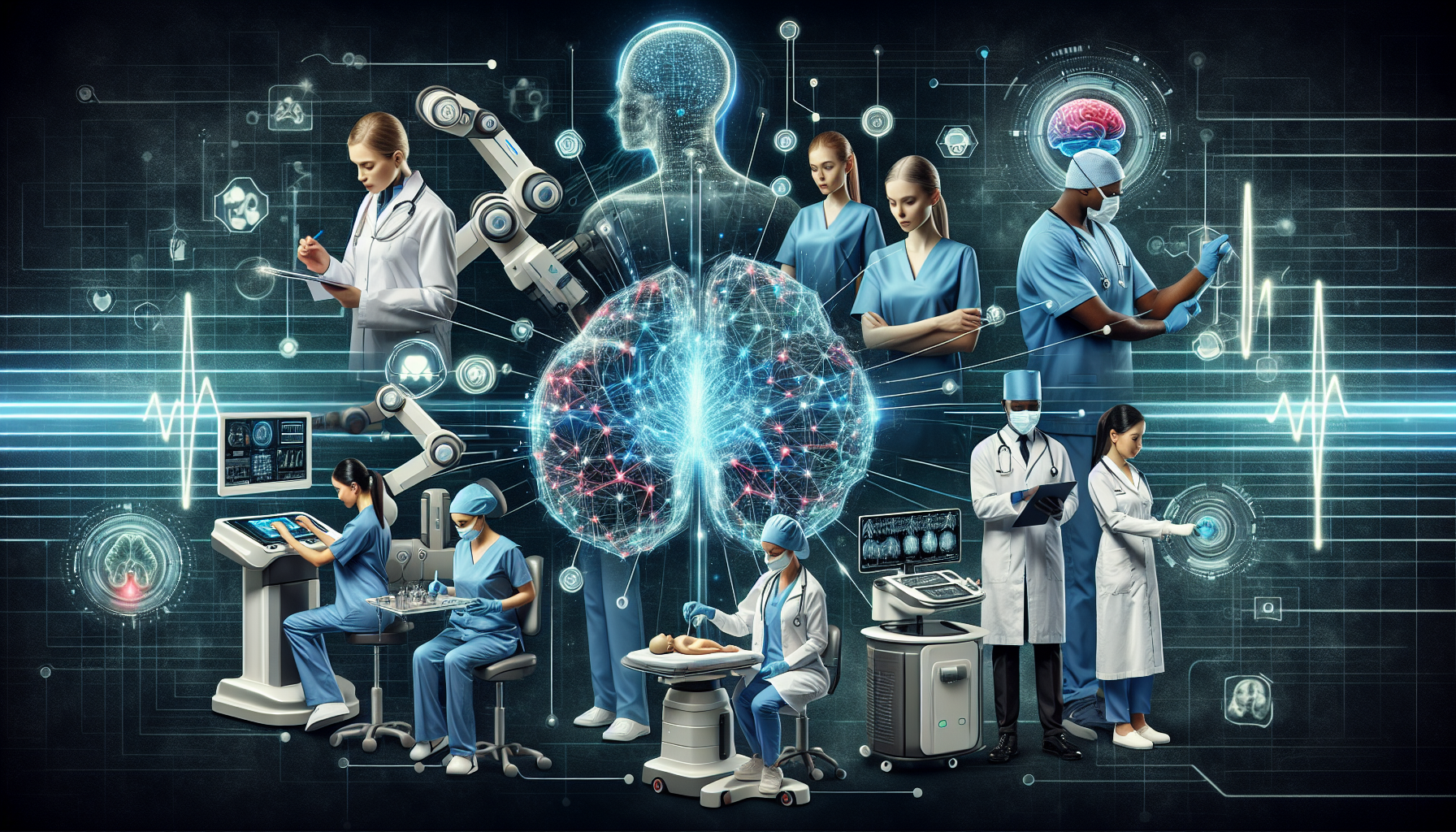AI-Powered Diagnostics
Artificial Intelligence has revolutionized the diagnostic process in healthcare, enabling faster and more accurate detection of diseases. For instance, AI algorithms are now capable of analyzing medical imaging data, such as X-rays and MRIs, to identify abnormalities often invisible to the human eye. A study published in “Nature” highlighted how Google’s DeepMind developed an AI that outperforms radiologists in diagnosing breast cancer from mammograms, reducing false positives and negative rates significantly.
Additionally, AI models can analyze vast datasets from electronic health records (EHRs) to provide insights into patient conditions. For example, IBM Watson has been employed to assist doctors in diagnosing complex conditions by aggregating and interpreting data from numerous sources in real time. With machine learning algorithms continually improving as they consume more data, the accuracy and efficiency of diagnoses are set to increase exponentially.
Personalized Medicine
AI facilitates the shift toward personalized medicine, tailoring treatment plans based on individual patient characteristics. By analyzing genomic data, AI can predict how patients will respond to specific treatments. Companies like Tempus leverage AI to analyze clinical and molecular data on cancer patients, allowing for personalized therapy options that improve success rates and minimize side effects.
For instance, the use of AI algorithms in genomics has led to breakthroughs in targeted therapies for diseases such as cystic fibrosis and certain types of cancer. These treatments are crafted by understanding the unique genetic makeup of patients, ensuring that the prescribed medicine is effective and reduces unnecessary exposure to ineffective treatments.
Drug Discovery and Development
Historically, drug development has been a lengthy and costly process, often taking more than a decade to bring a drug to market. AI technologies streamline this by analyzing existing literature, clinical trial data, and current research trends to identify potential drug candidates faster. For instance, Atomwise utilizes deep learning to predict how different chemical compounds will interact, speeding up the screening of new drugs.
A well-known application of AI in drug discovery is BenevolentAI, which successfully identified a potential treatment for ALS by analyzing vast datasets of existing drugs and biological pathways. By automating the discovery process, AI not only reduces costs but also enhances the probability of success in developing effective new medications.
Virtual Health Assistants
Virtual health assistants powered by AI provide patients with immediate support and guidance regarding their health issues. These AI-driven chatbots can triage symptoms, offer insights on medication adherence, and remind patients about appointments. For instance, Buoy Health uses machine learning to assess symptoms and recommend the next steps, bridging gaps in healthcare access for millions.
Healthcare providers like the Mayo Clinic have integrated AI virtual assistants into their operations, enabling patients to communicate with the facility efficiently. This technology not only enhances patient engagement but also frees up healthcare professionals to focus on more critical tasks, thereby improving overall operational efficiency.
Predictive Analytics in Patient Care
AI’s predictive analytics capabilities are transforming patient care by enabling proactive interventions before health issues escalate. By analyzing historical patient data, AI can identify individuals at risk for chronic conditions like diabetes or heart disease. For example, Mount Sinai Health System applies machine learning algorithms to predict hospital readmissions, allowing healthcare teams to intervene early and provide necessary support.
Moreover, AI models can utilize social determinants of health, such as socioeconomic factors and lifestyle choices, to provide more comprehensive risk assessments. By predicting outcomes based on a broader dataset, healthcare providers can customize preventive measures and allocate resources more effectively, ultimately improving patient health and reducing costs.
Enhancing Administrative Efficiency
Administrative burdens consume a significant amount of healthcare providers’ time and resources. AI technologies are streamlining administrative tasks such as scheduling, billing, and documentation. Natural language processing (NLP) systems, for instance, can transcribe physician notes and automate various documentation processes, thereby minimizing human error and improving accuracy.
Companies like Zocdoc have capitalized on AI to enhance patient scheduling and streamline appointment booking processes. By reducing wait times and administrative overhead, healthcare systems can focus more on patient care rather than operational logistics.
Telemedicine and Remote Monitoring
AI is at the forefront of telemedicine and remote patient monitoring, which have gained immense popularity, especially during the COVID-19 pandemic. AI systems can monitor patients’ vital signs and health metrics through wearable devices, sending alerts when abnormalities are detected. For example, Apple’s HealthKit integrates AI to track various health parameters, enabling early detection of health issues without requiring a hospital visit.
Additionally, AI-powered platforms facilitate virtual consultations, making healthcare more accessible to patients in remote areas. Companies like Teladoc and Amwell utilize AI algorithms to enhance telehealth services, ensuring that remote consultations are both efficient and effective, thereby expanding access to quality healthcare.
AI in Surgical Assistance
AI technologies are increasingly being integrated into surgical procedures, enhancing precision and outcomes. Robots assisted by AI algorithms provide surgeons with real-time data and analytics during procedures, improving decision-making. The da Vinci Surgical System is a prime example, where AI assists surgeons in minimally invasive surgeries, enabling quicker recoveries and reduced complication rates.
Furthermore, the integration of AI in predictive analytics helps in planning surgeries by assessing patient risk factors, ensuring that the surgical team is prepared for any possible complications. As robotics and AI continue to evolve, the future of surgery looks promising, with enhanced patient outcomes and efficiency.
Conclusion and Future Directions of AI in Healthcare
The integration of AI in healthcare technologies is making unprecedented impacts, enhancing diagnostic accuracy, personalizing treatments, and improving overall efficiency in patient care. As AI continues to evolve, its applications are anticipated to expand further, offering solutions to ongoing challenges within the healthcare system. From revolutionizing drug discovery to streamlining administrative tasks, the potential of AI in transforming healthcare is vast, and its ongoing development promises even greater advancements on the horizon.


